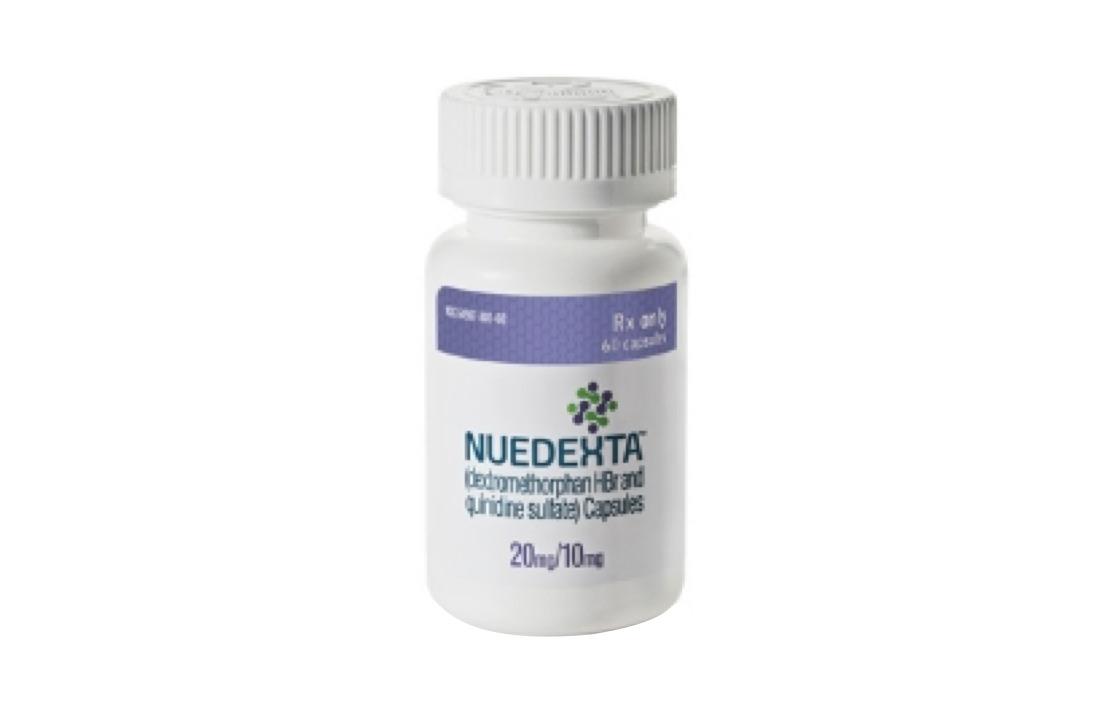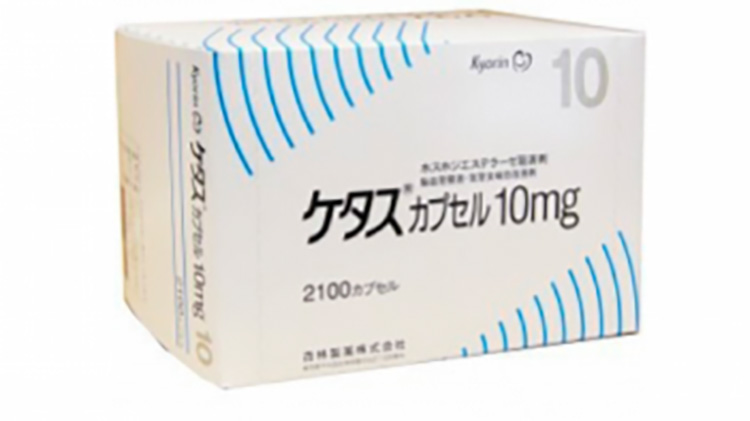Nuedexta (dextromethorphan HBr and quinidine sulfate) vs Ketas (ibudilast)
Nuedexta (dextromethorphan HBr and quinidine sulfate) vs Ketas (ibudilast)
Nuedexta is a combination medication consisting of dextromethorphan HBr and quinidine sulfate, primarily approved for the treatment of pseudobulbar affect (PBA), a condition characterized by uncontrollable episodes of crying and/or laughing. Ketas, which contains the active ingredient ibudilast, is not approved in the United States but is used in Japan and Korea to treat asthma and post-stroke complications; it has been studied for its potential anti-inflammatory and neuroprotective effects in multiple sclerosis and other neurological conditions. When deciding between these medications, it is crucial to consider the specific condition being treated, as Nuedexta is specifically indicated for PBA, while Ketas's use would be more experimental in nature and off-label in the context of neurological diseases in countries where it is not approved for such use.
Difference between Nuedexta and Ketas
| Metric | Nuedexta (dextromethorphan HBr and quinidine sulfate) | Ketas (ibudilast) |
|---|---|---|
| Generic name | Dextromethorphan hydrobromide and quinidine sulfate | Ibudilast |
| Indications | Treatment of pseudobulbar affect (PBA) | Treatment of asthma and post-stroke complications; under investigation for multiple sclerosis and substance abuse |
| Mechanism of action | Dextromethorphan acts as an NMDA receptor antagonist, Sigma-1 receptor agonist; Quinidine increases dextromethorphan bioavailability by inhibiting CYP2D6 enzyme | Phosphodiesterase inhibitor, reduces neuroinflammation and promotes neuroprotection |
| Brand names | Nuedexta | Ketas, Eyevinal |
| Administrative route | Oral | Oral |
| Side effects | Dizziness, nausea, vomiting, cough, peripheral edema, urinary tract infection, flu symptoms | Headache, dizziness, nausea, rash, abdominal pain |
| Contraindications | Patients taking MAOIs, patients with a history of heart disease, QT prolongation, or hypersensitivity to dextromethorphan or quinidine | Hypersensitivity to ibudilast or any of the product components |
| Drug class | Central nervous system agent | Phosphodiesterase inhibitor |
| Manufacturer | Avanir Pharmaceuticals | Kyorin Pharmaceutical Co., Ltd. |
Efficacy
Nuedexta and Amyotrophic Lateral Sclerosis (ALS)
Nuedexta, a combination of dextromethorphan HBr and quinidine sulfate, is primarily approved by the FDA for the treatment of pseudobulbar affect (PBA), a condition associated with various neurological disorders, including ALS. PBA is characterized by uncontrollable episodes of crying and/or laughing that are disproportionate or incongruent to the patient's feelings. While Nuedexta is not specifically approved for the treatment of ALS itself, its efficacy in managing the emotional lability associated with PBA in ALS patients has been documented. However, its impact on the progression of ALS or improvement of motor function remains unsupported by substantial clinical evidence.
Studies evaluating the use of Nuedexta in patients with ALS have primarily focused on its ability to alleviate symptoms of PBA. Clinical trials have demonstrated that Nuedexta can significantly reduce the frequency and severity of PBA episodes in ALS patients, thereby improving their quality of life. Despite these benefits in the context of PBA, ALS patients and caregivers should be aware that the treatment does not target the underlying neurodegenerative processes of ALS.
Ketas (Ibudilast) and Amyotrophic Lateral Sclerosis (ALS)
Ketas, known generically as ibudilast, is not approved by the FDA for the treatment of ALS. However, it has been studied for its potential neuroprotective effects, as it is a phosphodiesterase inhibitor with anti-inflammatory properties. In the context of ALS, ibudilast is considered for off-label use and has been the subject of clinical trials to investigate its efficacy in slowing the progression of the disease. The rationale behind exploring ibudilast for ALS is its potential to mitigate the neuroinflammatory pathways that contribute to neuronal degeneration.
Early-phase clinical trials have suggested that ibudilast may have a modest effect on slowing the progression of ALS, as measured by certain biomarkers and clinical assessments. However, these findings require further validation through larger, more comprehensive studies to establish the drug's efficacy and safety profile in ALS patients. As of the knowledge cutoff date, ibudilast is not a standard treatment for ALS, and its use remains investigational. Patients with ALS should consult with their healthcare providers to understand the potential risks and benefits of off-label ibudilast use and to explore participation in clinical trials.
Regulatory Agency Approvals
Nuedexta
-
Food and Drug Administration (FDA), USA

Ketas
-
Pharmaceuticals and Medical Devices Agency (PMDA), Japan

Access Nuedexta or Ketas today
If Nuedexta or Ketas are not approved or available in your country (e.g. due to supply issues), you can access them via Everyone.org.
How it works

Make an enquiry
Choose the medicine you want to buy, answer a couple of questions, and upload your prescription to speed things up. We’ll get back to you within 24 hours.


Make an enquiry
Choose the medicine you want to buy, answer a couple of questions, and upload your prescription to speed things up. We’ll get back to you within 24 hours.


Breeze through the paperwork
We'll guide you through the required documents for importing unapproved medicine, ensuring you have all the necessary information.


Get a personalized quote
We’ll prepare a quote for you, including medicine costs and any shipping, administrative, or import fees that may apply.


Receive your medicine
Accept the quote and we’ll handle the rest - sourcing and safely delivering your medicine.

Some text on this page has been automatically generated. Speak to your physician before you start a new treatment or medication.
Let's talk
If you have any questions, call us or send us a message through WhatsApp or email:
Contact us




